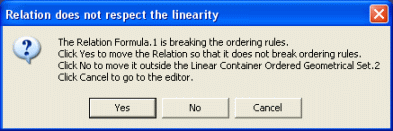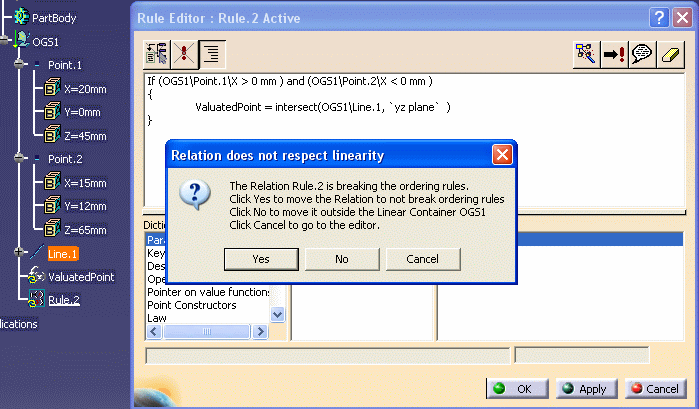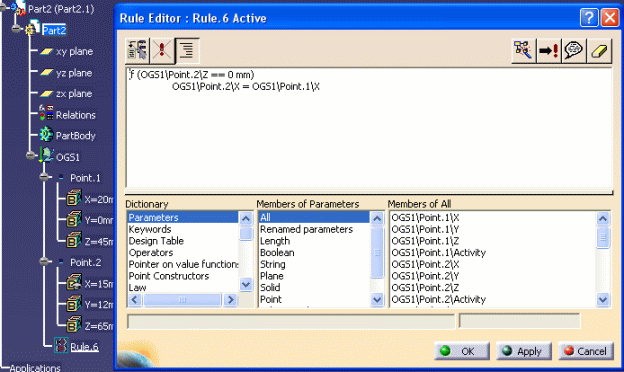 |
If you create a rule which breaks the linearity, you are asked if:
 |
If the rule is located in the Relations Set, drag and drop it onto the
Ordered Geometrical Set icon to move it automatically to the linear container. The rule is automatically moved to the proper location if it
exists.
If not, an error message is displayed indicating that no proper location
has been found in the linear container for the feature that you are
trying to move. After being moved, the rule is the new In Work Object (IWO).
You create a rule with the following geometrical inputs and outputs:
Inputs |
Outputs |
|
|
|
|
|
|
|
The Rule is located after the point ValuatedPoint which means that
the rule located in the Ordered Geometrical Set does not respect the linearity
because it is located after the geometrical objects it valuates.
 |
If you click No in the dialog box above, the rule is moved to the Relations Set.
You create a rule with the following inputs and outputs:
Inputs |
Outputs |
|
|
|
Even if the rule does not really respect the linearity constraints (it is
located after Point.1 and Point.2), the rule will be created in the linear
container because its parent features
contain parameters located in OGS1\Point.1
and OGS1\Point.2.
 |
If the parent and the child features are the same feature (for example if
the body of the rule is OGS1\Point.1\Y = OGS1\Point.1\X), the rule respects the linearity constraints
required.